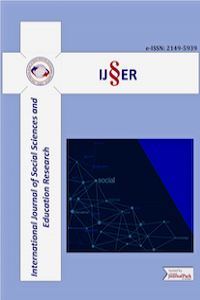Bir insan hakkı olarak katılım hakkı ve Edirne Kent Konseyi örneği
İnsan haklarının tarihsel evrimine bakıldığında üç kuşak insan hakları olduğu söylenebilir (Mourgeon, 1990). Bunlardan ilki en eski tarihli (1776 Amerikan ve 1789 Fransız Hak Bildirgeleri gibi) doğal hukuk bağlamında bireyciliğe dayananlardır. Burada kişi özgürlükleri, soyut ve hukuki olarak nitelendirilmiştir. İkincisi, 19.yy ikinci yarısından itibaren ve toplumun belli kesimlerinin faydalanabildiği sosyal ve ekonomik nitelikli haklardır. Sonuncusu ise dayanışma haklarıdır. Katılma hakkı dayanışma haklarına dâhil edilmiştir. Diğer insan haklarında olduğu gibi, katılım hakları da zaman içinde uluslararası antlaşmalara girerek kurumsal bir niteliğe bürünmüştür. Bu nedenle, kentli ve katılım hakları henüz oluşum sürecindedir. Bugün dayanışma haklarından olan katılım hakkı, üzerinde en çok durulan ve geliştirilmekte olan bir insan hakkıdır (Mourgeon, 1990; Tekeli, 2011). Katılım hakkının Türkiye’deki gelişimi çoğunlukla Yerel Gündem 21 ışığında kurulan kent konseyleri üzerinden ele alınmaktadır. Dolayısıyla bu çalışmanın amacı kent konseylerinin katılım hakkının gelişimine ne düzeyde elverişli olduğunu anlamaya çalışmaktır. Bu doğrultuda kentle ilgili konularda kent konseylerinin bilgilendirme, diyalog, müzakere ve tartışma süreçlerinde nasıl bir rol üstlendiği, bu süreçleri ne kadar etkin yerine getirebildiği üzerine odaklanılacaktır. Araştırmada Edirne Kent Konseyi bahsedilen açılardan incelenecektir. Araştırmada veri toplama yöntemi olarak mülakat yöntemi tercih edilecektir. Edirne Kent Konseyi, sivil toplum kuruluşları ve Edirne Belediyesi ile mülakatlar yapılacaktır. Saha çalışması kapsamında yürütülecek araştırma yöntemi, epistemolojik yaklaşım ve yasal/yönetsel düzenlemeler açısından yorumlayıcı (interpretive) ve açıklayıcı (explanatory) bir niteliktedir. Araştırma aynı zamanda teoriden veriye uzanan tümdengelimci bir yaklaşımla (deductive) konuya yaklaşmaktadır. Çalışma, görüşmecilerle yapılacak mülakatlar ve ilgili kurum ve kişilerle yapılacak röportajlar bağlamında nitel (qualitative) bir araştırma özelliği taşımaktadır.
Anahtar Kelimeler:
katılımcılık, yerel yönetimler, katılım hakkı, Yerel Gündem 21
Participation right as a human right and case of Edirne City Council
Three generations of human rights are likely to be asserted when historical evolution of human rights are considered (Mourgeon, 1990). Those of the 1776 American and 1789 French Human Rights Manifestations which root in individualism based on the natural law are the oldest examples of first generation. In these examples, freedom of the person is considered in an abstract and judicial context. Second generation of human rights implemented in the second part of 19th century are those social and economic rights from which only a fraction of the society is benefited. The last generation is those rights of solidarity. Participation right is consisted in the solidarity rights. As could be envisaged in the other human rights, the participation rights are also wrapped into an institutional character by being engaged in international treaties. Thus urban and participation rights are still in the formation process. Today participation right as being one of the solidarity rights is the most significant one under consideration and development (Mourgeon, 1990; Tekeli, 2011). Development of the participation right in Turkey is mostly handled via ‘city councils’ formed mainly in line with the Local Agenda 21 concept. Thus the main aim of this study is analyse how much suitable the city councils are for the development of participation right. In this context, the study will focus on role of the city councils they assume on discussion, dialogue, negotiation and informing processes for the society on the issues related to the city and how effective they are on this performance. Thus in this study, the case of Edirne City Council will be examined regarding these issues. For the data collection, interview method will be used in the study. In this context, interviews will be carried out with the Municipality of Edirne, NGOs in Edirne, professional organizations and the city council. In terms of epistemological approach, the research process is interpretive and explanatory over legal and administrative regulations within the scope of field study. At the same time, the research approaches the subject with a deductive approach, which reaches the data by starting from the theory. In addition, the research is partly inductive, because of the fact that it aims to contribute to the theory by using the findings of the field study. It also carries a qualitative research characteristic in the context of the interviews to be carried out with the participants and the interviews carried out with relevant institutions and individuals.
Keywords:
participation, local governments, participation right, Yerel Gündem 21,
___
- Brenner, N., Marcuse, P. and Mayer, M.(eds) 2012. Cities for people, not for profit. Critical Urban theory and right to the city. New York: Routledge.
- Harvey, D. and Potter, C. 2009 The right to the just city. In Marcuse, P (eds.) Searching for the just city. Debated in urban theory and practice. London: Routledge.
- Heynen, N., Kaika, M. and Swyngedouw, E. (eds.) 2005. In the Nature of Cities: Urban Po-litical Ecology and the Politics of Urban Metabolism. London and New York: Routledge.
- Lefebvre, H. 2001. Comments on a new state form, Antipode 33(5): 769-782. Mourgeon, J. 1990. İnsan Hakları, Çev. Ayşen Emekçi-Alev Türker, İletişim Yayınları, İstanbul.
- Tekeli, İ. 2011. Kent Ketli Hakları ve Kentsel Dönüşüm, Tarih Vakfı Yurt Yayınları, İstanbul.
- Savaş Zafer Şahin, Kent Konseyleri: Mevcut Durum, Sorunlar, Çözüm Önerileri,
- https://prezi.com/25wjq_afabuh/kentkonseyleri-mevcut-durum-sorunlar-cozum-onerileri/
- https://wcd.coe.int/ViewDoc.jsp?p=&Ref=CHARTE/URBAINE
- Gündem 21-Habitat” www adresi: http://www.satko.com.tr/doga/TGN21.htm, Erişim tari-hi:14.08.2017
- Gündem 21 Nedir?”, www adresi: http:/www.deu.edu.tr/gundem21, Erişim tari-hi:04.08.2017; “Yerel Gündem 21”, Yerel Gündem 21 Bülteni, S:6, Ekim 1999
- http://www.la21turkey.net/index.php?pages=topic&op=cat&cid=101&tid=260, erişim tarihi 05.07.2017
- Yayın Aralığı: Yılda 4 Sayı
- Başlangıç: 2015
- Yayıncı: Mahmut DEMİR
Sayıdaki Diğer Makaleler
İletişim fakülteleri eğitim sistemine yönelik yeni bir yaklaşım
Nurettin GÜZ, Hayrullah Yanık, Ceren Yeğen
Sosyal medyanın politik bir aradalığı sağlama potansiyeli
Kazakistan Cumhuriyeti’ndeki Başkanlık Sisteminin yapısal özelliği ve sorunları
Türkçede kişi adıllarının deyişselliği
Dil, hafıza ve sözcük dağarcığı çalışmaları
Çocuklarda bilişsel davranışçı terapi ve uygulamaları
Etkileşimli sınıf ortamında biçimlendirici değerlendirme ve dönüt: Mobil teknoloji kullanımı
